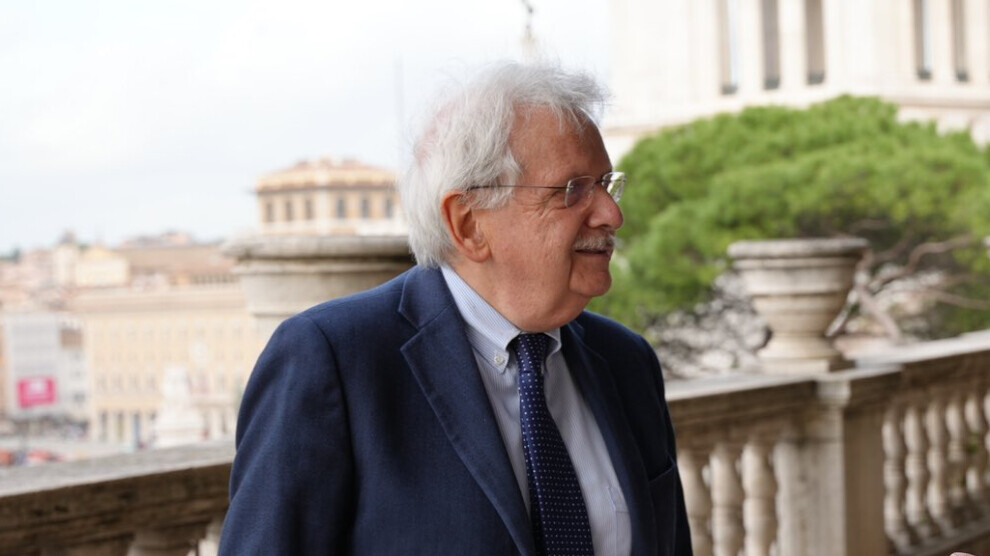Mauro Palma sends open letter to the CPT
Mauro Palma, former President of the CPT, wrote an open letter about the situation of Ōcalan.
Mauro Palma, former President of the CPT, wrote an open letter about the situation of Ōcalan.

Mauro Palma, President of European Prison Centre, University Roma Tre, former National Guarantor of the Rights of Persons Deprived of their Liberty (Italian National Preventive Mechanism, under UN OPCAT), and former President of the CPT, wrote an open letter about the situation of Abdullah Ōcalan, and former Italian Senator and MP, and spokesperson for the committee Time has come - Freedom for Ōcalan sent it to the CPT.
The letter underlined that the European body "while not interfering with the legislation of individual states, has always established the principle that every sentence should have a chance of positive reintegration into the community, thus giving meaning to the time of the criminal execution."
The letter said: "I have never believed that life imprisonment is a penalty compatible with respect for the person, especially when it is not possible to review it after a substantial number of years; that is, when it is a life sentence with no possibility of hope. Moreover, this position is in line with what has been established by the European Court of Human Rights in Strasbourg.
Even the European Committee for the Prevention of Torture (CPT), which I have chaired in past years, while not interfering with the legislation of individual states, has always established the principle that every sentence should have a chance of positive reintegration into the community, thus giving meaning to the time of the criminal execution."
The letter continued: "This principle is even more relevant when the person sentenced to life imprisonment ends up being the 'slave' of a political dispute that implicitly assigns to his detention a message function and a symbolic connotation that goes beyond the consideration of the person, his evolution, his subjectivity. The detained person thus ends up becoming almost a 'hostage' of something that transcends his detention behaviour and his possibility of interlocution.
Even more so when the conditions of detention reduce the possibilities of socialisation to a minimum, taking the form almost of segregation from the rest of the detainee population and reserving sociability to that minimal amount that makes the very word 'sociability' lose its meaning and verge on outright isolation. And even more so when the location of the place of detention makes it difficult, if not impossible, for one's family members, loved ones and even one's lawyers to contribute."
The letter added: "All of these elements coincide in the detention of Abudllah Ōcalan held in the prison on the island of Imrali in the Sea of Marmara, since the end of the last century and for almost a decade in total isolation, cushioned then by the pseudo-socialisation of a very small group of other people held under the same regime.
The conditions of aseptic detachment from the social reality that his detention in itself determines - and of which I have had the opportunity of direct observation, as well as of reading it in the Reports published by the CPT - make unsustainable, after many years, the continuation of a regime that has never been reviewed and that has become more and more an element of a conflict that goes beyond the person and becomes part of a dispute that has other forums for discussion, tension, and possible settlement, which have nothing to do with the symbolic materiality of his being in that prison and in that detention regime. This is why I believe that the European control bodies must return to take an interest in his detention situation, return to check it directly in order to find a way for it to fall within the parameters of those standards that Europe wants to affirm in every country and for everyone."